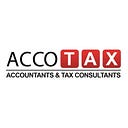A Beginner’s Guide to Freelance Bookkeeping
Most freelancers, other than the occasional freelance accountant, do not find it very attractive to manage their money. As a consequence, most freelancers do not think about accounting twice — until they know what has happened to their whole revenue. And accountants for freelancers are in demand nowadays.
For any company, including freelancing, bookkeeping is vital. Fortunately, freelance accounting is not difficult; the finest solutions guarantee easy and clear records and enable freelancers to worry as seldom as possible about their money management. The next technique is merely three stages, so that your funds may be more readily understood.
Understanding Bookkeeping
Most independent bookkeepers associate with budgeting. They both deal with income and expenditure monitoring but deal with the information in different ways. First, the purpose of budgeting is to manage funds for the future — to avoid early financial exhaustion — but accounting aims to maintain track of previous finances, to guarantee that correct records exist. Secondly, budgets are often quite broad, with total and average considerations, but records of accounting are often detailed and describe all transactions.
Keeping the Right Records
You need to record money whenever money moves around your firm. If you pay a customer, you have to keep track of that; you also have to keep track of this when you shop — which may be purchasing a new computer, or having a customer lunch — for business. As previously said, a Professional accountant in London might be beneficial to engage, particularly when the company is flourishing.
Organizing Your Records
You cannot shoot it in a shoebox and forget it if you start to collect proof of your income and money. A disorderly book is as awful as a non-existent one; it has to be arranged for your records to be helpful. Fortunately, keeping your books in order doesn’t require much effort.
It is safer to scan all of the documents on your computer and save your Book to the cloud or an external hard disk when keeping a registry store full of printed invoices, receipts, and other physical copies. Then, by month and then by year, you should manage your stored files, so that you know precisely what to find each record.
At Accotax we’re up to speed on all laws that might affect the free employment of self-employed people, whether you are an independent employer or an entrepreneur. Contact us for more details at info@accotax.co.uk
